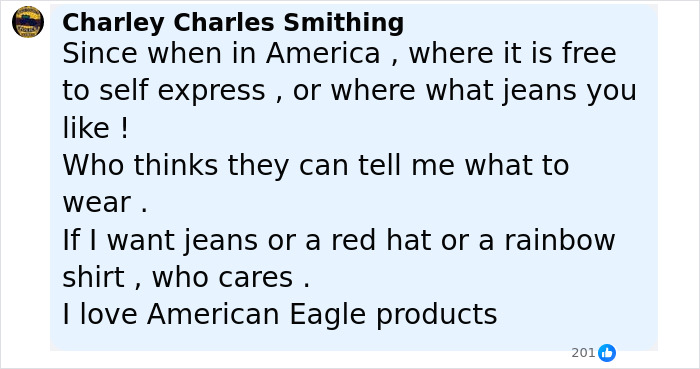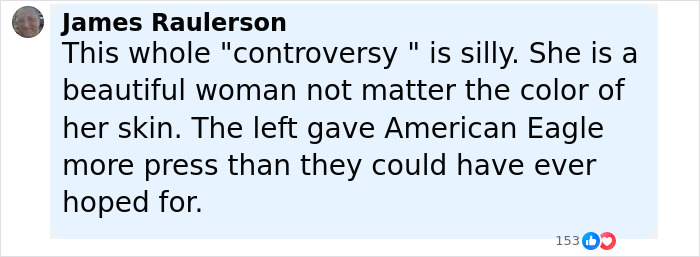New Yorker staff writer Doreen St. Félix is facing intense criticism after her own past words came back to bite her.
Old tweets in which she expressed overtly racist views toward white people resurfaced shortly after she published a scathing article about actress Sydney Sweeney, whom she described as an “Aryan Princess.”
The writer deleted her social media accounts in a panic after tweets resurfaced in which she admitted to being “filled with hate” toward White people.
St. Félix had also claimed that White people were “genetically predisposed” to spreading infectious diseases, once again targeting genetic aspects of race, the very theme she used to criticize Sweeney’s campaign.
New Yorker writer deletes social media after racist tweets resurface following scathing critique of Sidney Sweeney ad

Image credits: StraightioLab
In the article that sparked it all, St. Félix zeroed in on American Eagle’s “Sydney Sweeney Has Great Jeans” campaign, taking aim at the tagline’s double meaning: “genes” versus “jeans.”
The writer argued that the ad’s play on words was loaded with racial and intimate implications, writing, “Genes, referring to Sweeney’s famously large breasts; genes, referring to her whiteness.”

Image credits: sydney_sweeney
“The American Eagle campaign, its presentation of Americana as a zombie slop of mustangs, denim, and good genes, is lowest-common-denominator stuff,” St. Félix wrote, before accusing fans of seeing Sweeney as an “Aryan princess” ready for cultural recruitment.
The piece quickly went viral, dividing audiences in the process.

Image credits: American Eagle
One side agreed with St. Félix’s take, particularly the clothing company’s decision to emphasize the actress’ genetic features. For them, the move was considered tone-deaf and exclusionary of other races and body types.

Image credits: American Eagle
On the other hand, St. Félix’s critics saw her piece as nothing more than an unhinged rant aimed at shaming a woman for the “crime” of being white and beautiful.
In reality, they argued, the backlash was simply racism disguised as activism.
Critics pointed out that, in this day and age, diversity is widespread across both fashion and entertainment.
They argued that the phrase “great jeans” wasn’t necessarily a nod to Sweeney’s whiteness, but rather a playful reference to her beauty. Something that could’ve been applied to any model, regardless of race.
The writer confessed to being filled with hate towards White people, whom she blames for a variety of problems

Image credits: realchrisrufo
Shortly after the article dropped, past tweets from St. Félix resurfaced, casting her arguments in a new light.
“I hate white men,” she wrote. “You all are the worst. Go nurse your Oedipal complexes and leave the earth to the browns and the women.”
“[White people] fill me with a lot of hate,” she added.
“White capitalism is the reason the earth is in peril.”

Image credits: realchrisrufo
The tweets were then collected and spread on social media, with one account writing, “Shocker, the author of the insane New Yorker article about Sydney Sweeney is an outright anti-white racist.”
Soon after that, St. Félix deleted her account. Neither The New Yorker nor her have addressed the controversy, limiting themselves only to blocking those who spread the inflammatory tweets.

Image credits: realchrisrufo
For many, the controversy shed light on the increasingly hostile nature of cultural discourse in the United States, which in recent years has become consumed by identity politics and ideological agendas.
Many were blindsided by the backlash, seeing it less as a political critique and more as a cultural hit job on a successful woman known for staying neutral, professional, and largely silent on political matters.
PR experts believe the chaos has ultimately benefited Sweeney, putting her at the center of a national conversation

Image credits: doreenstfelix
The actress has kept quiet amid the chaos, simply posting an Instagram carousel on August 16 with friends during a night out. Dressed in oversized blue jeans and a crop top, she captioned it “duval diaries,” making no mention of the ad.
According to PR experts, the uproar, while noisy, is unlikely to translate into real damage for Sweeney’s career.
“The ads have undeniably gotten the actress, and the company, more attention and publicity than they have ever had,” said Steve Honig, suggesting the campaign may end up strengthening her brand.

Image credits: sydney_sweeney
“People are talking about her, and in entertainment, that’s almost always a win,” Honig added.
Online, both fans and detractors of Sweeney managed to put aside their differences to find common ground in one thing in particular:
As one commenter put it, “Racism should not be tolerated by anyone no matter your skin color.”
“It’s called Karma.” St. Félix’s words brought her more trouble than she bargained for




















 Follow Us
Follow Us





